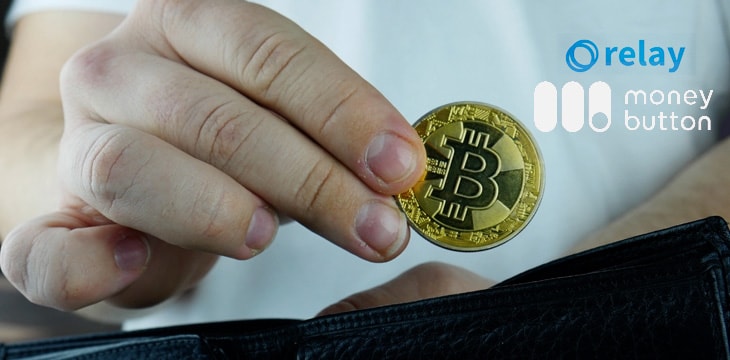|
Getting your Trinity Audio player ready...
|
The Internet is finally getting the economic layer it needed. With Money Button’s acquisition by the Bayesian Group and RelayX’s launch of the USDC stablecoin, Bitcoin wallets are entering a new era. That era involves extreme flexibility and utility far beyond sending and receiving funds… and potentially billions of new users.
Bitcoin has always been a layer for commercial activities on the Internet—but it took the vision of BSV and its community to make it into something useful. It perhaps even begins the long-talked-about era where Bitcoin starts to fade away, into the walls as the “plumbing” Dr. Craig Wright describes it as.
Gaming site Peergame published a blog post a few days ago titled “What Moneybutton’s acquisition means to BSV,” which explained the situation. It described first the synergies between Money Button’s wallet technology and liquidity platforms like Bayesian (in particular its Fabriik exchange), then how those same synergies exist already in the relationship between RelayX and the FloatSV exchange (FloatSV is part of the OKEx group).
It’s all about tokenization
As we explained a few days ago, “tokenization on BSV” is something quite different to what we’ve seen from Ethereum’s ERC-20 offerings over the past few years. We’re not talking about speculative ICO money scams, or crowdfunders thinly disguised as utility tokens in the faint hope of tricking the SEC.
Digital tokens can represent almost anything at all, but the secret is making them actually work. They can represent any fiat currency and any digital asset (on any blockchain), and when those tokens all live on BSV, they’re easily transferrable and swappable. To the end-user, this should be fast, cheap and seamless.
Could all this be done on Ethereum? In theory, yes. But Ethereum is struggling with scalability and high speeds. Enter BSV. As we also explained last week, it’s possible to tokenize the entire state of the Ethereum blockchain on BSV. It follows that it is also possible to tokenize any other chain as well.
At this point, BTC’s “digital gold” and 4MB transaction block concepts start to look very narrow indeed, and BSV’s vision of scalability and massive transactional throughput begins to look like common sense. Ultimately, there is no longer any need to use blockchains other than Bitcoin BSV.
As Peergame put it:
End-users do not care whether or not their coins are wrapped or issued on top of a token as long as it works and transacts faster and cheaper. End-users will simply switch their slow wallet like Metamask to the fast wallet like Moneybutton.
Users can transact in whatever currency or asset they like, and merchants can accept whatever they like. Since Money Button and RelayX (or any wallet using the Paymail protocol) can be used as digital identity-keepers and login credentials, there’s no longer any need for merchants to maintain multiple-chain wallets or wallet infrastructure. Users no longer need to go through the laborious process of creating a new account for every service they sign up for (technically, they’re no longer even signing up… just logging in).
Peergame noted that Bayesian can act as the liquidity middle-man, providing secure atomic swaps in any asset that moves through its system, and managing the native assets itself.
“BSV apps do not need to compromise their system to expand to the broader market. We, Peergame, have long pondered the option of having our own deposit system to accept other coins. But we don’t need to anymore because BTC users will be able to send their BTC to Peergame with the same user experience we provide now, such as no registration, instant payout, on-chain provably fair system, sovereignty over their funds.”
RelayX, the post pointed out, also has this capability through its connection to the FloatSV/OKEx platform—and has also just released the first BSV stablecoin, called USDC. Just as Fabriik provides the token protocol for Money Button, so does RunSV for RelayX.
RelayX (and FloatSV) CEO Jack Liu put it this way on Twitter:
The Moneybutton sale is the most devastating news to hit Bitcoin since the Binance delisting.
Bitcoin will survive this setback but that’s what it is.
— Jack 🇪🇸 🇭🇰 🇸🇬 🇨🇦 (@liujackc) October 5, 2020
Liu’s comment is probably tongue-in-cheek, or another gentle jab at the competition—Binance‘s BSV delisting fiasco led to the launch of FloatSV, which has enjoyed great success since taking Binance’s BSV business away from them. What it really means is, better things are about to happen.
HandCash, which is still the most popular mobile wallet for BSV, is also working on its own partnerships and will likely be used the same way in the future.
Peergame predicted BSV would soon see an influx of billions of users, and told builders to get ready. A large percentage of these billions will not even know they’re using BSV, know the name “Bitcoin”… or care.

 12-21-2025
12-21-2025 




